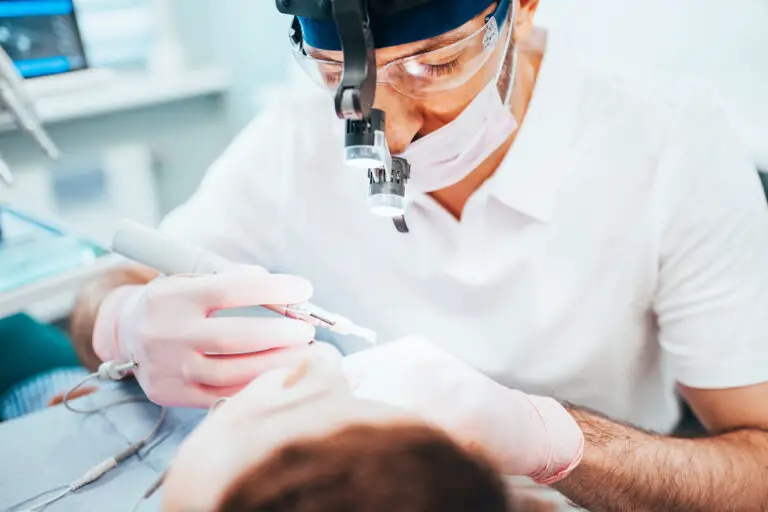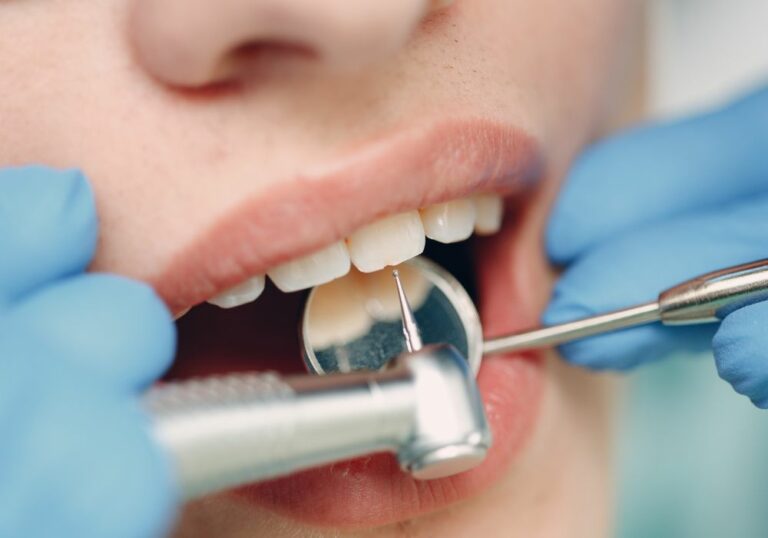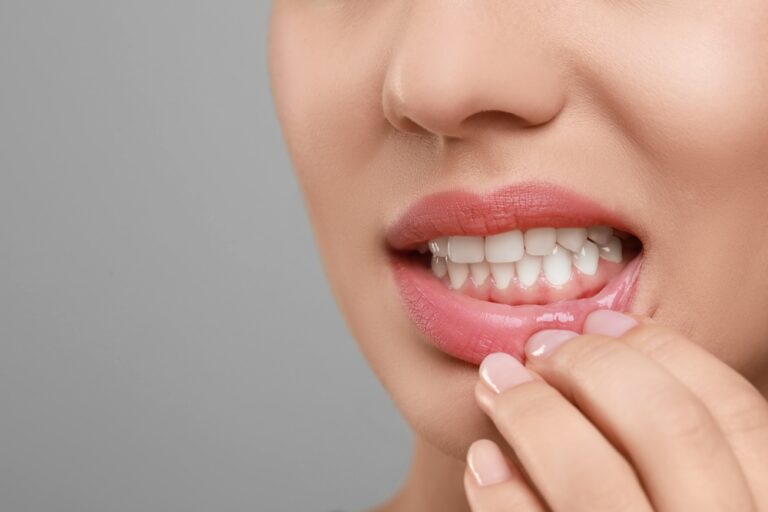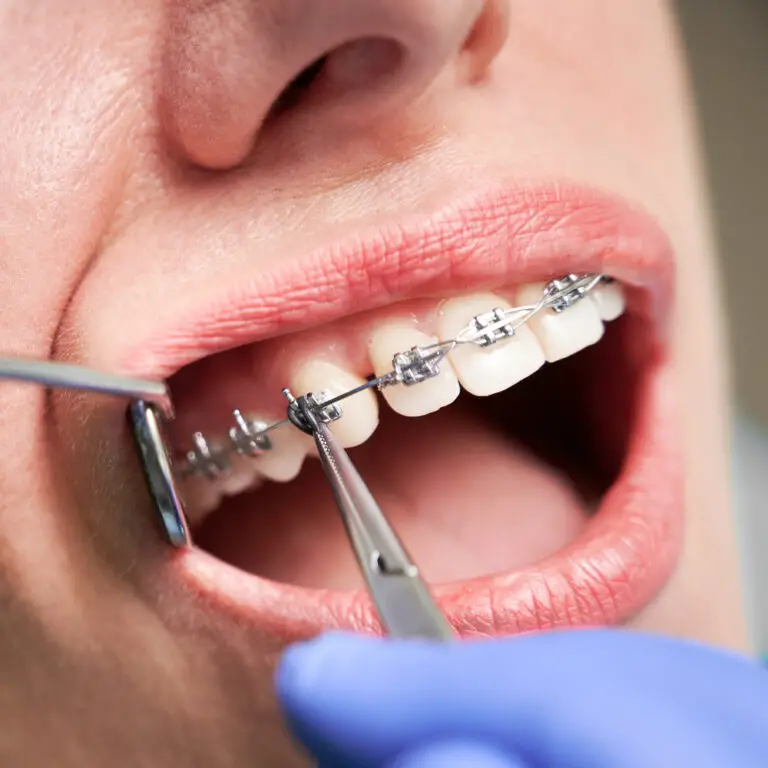Anxiety is a common mental health condition that involves excessive and persistent worry about everyday situations. While anxiety is often associated with psychological symptoms, research shows it can also affect physical health, including oral health. This article explores the potential links between anxiety and dental problems like weakened teeth in detail.
How anxiety affects the body
Anxiety triggers the body’s stress response, which prepares us to respond to perceived threats. When anxious, the body releases stress hormones like cortisol and adrenaline from the adrenal glands. While this can be helpful for short periods, chronic anxiety leads to prolonged exposure to stress hormones that can impact the body in various ways:
Increased inflammation
Cortisol and other stress hormones increase inflammation, which is a natural immune response. Inflammation releases cytokines, which are proteins that regulate immune cells. Short bursts of inflammation help the body heal from infection or injury. However, chronic inflammation from long-term anxiety can cause an overproduction of immune cells and cytokines, leading to damage in healthy tissues and organs. Research indicates elevated markers of inflammation in patients with generalized anxiety disorder.
Decreased saliva
Saliva contains enzymes, proteins, and antibodies that help digest food, neutralize acids, and wash away food particles and bacteria in the mouth. This helps protect teeth from decay. Anxious people often experience dry mouth or xerostomia due to decreased saliva production from salivary glands. Studies show dry mouth is a common side effect of anxiety disorders. Lack of sufficient saliva leaves teeth more vulnerable to cavities and erosion.
Clenching and grinding
Many anxious people unconsciously clench their jaw or grind their teeth together, especially while sleeping. This puts excessive force on teeth over time, weakening tooth enamel and increasing the risk of fractures. Clenching and grinding are also symptoms of bruxism, which is commonly associated with anxiety. Up to 70% of bruxism cases occur in anxiety patients.
Poor oral hygiene
Some studies indicate people with anxiety tend to neglect oral hygiene tasks like flossing between teeth and brushing twice a day. Poor oral hygiene allows plaque, a sticky film of bacteria, to build up on teeth. Plaque irritates gums and progresses to periodontal disease. Plaque also releases acids that demineralize tooth enamel, leading to cavities.
Nutritional deficiencies
Anxiety can cause appetite changes, nausea, and digestive issues that affect dietary intake and nutrient absorption. Not getting enough vitamins and minerals over time — especially vitamin D and calcium — can weaken tooth enamel and the underlying bone that supports teeth. Vitamin D aids calcium absorption and mineralization of enamel.
Dental problems associated with anxiety
Research indicates anxiety disorders are linked to several dental health issues:
Tooth erosion
Erosion wears away tooth enamel through prolonged acid exposure. Enamel is made of hydroxyapatite crystals that demineralize and dissolve in acid. A 2019 study published in BMC Oral Health found people with generalized anxiety disorder (GAD) had a 1.7 times higher risk of tooth erosion compared to controls, likely from gastric acid entering the mouth due to GERD, vomiting from nausea, and dry mouth.
Dental caries
Dental caries, also known as cavities or tooth decay, develop from the acidic byproducts of oral bacteria consuming sugars and starches. Demineralization from these acids leads to breakdown of enamel and dentin. A 2013 study published in the European Journal of Oral Sciences associated high anxiety levels with a 49% increased incidence of dental caries.
Periodontal disease
Periodontal (gum) disease results from chronic bacterial infection and inflammation. A 2016 meta-analysis published in the Journal of Clinical Periodontology determined anxiety disorder patients have a 24% higher incidence of periodontitis. Periodontitis causes gums to recede and bone loss, loosening teeth.
Tooth fracture
Tooth fractures occur when significant force is applied to teeth, often from trauma or excessive grinding and clenching from bruxism. One study in the Journal of Psychology found people with anxiety have over 5 times the risk of tooth fractures compared to non-anxious controls.
Strengthening teeth affected by anxiety
If anxiety is impacting your dental health, there are steps you can take to strengthen teeth and manage symptoms:
Seek treatment for anxiety
Seeing a mental health professional can help you manage anxiety through talk therapy, cognitive behavioral techniques, and relaxation methods. Anti-anxiety medications like SSRIs or benzodiazepines may also be recommended in some cases under a doctor’s supervision. Treating the root cause can alleviate the downstream physical effects on the body.
Stimulate saliva flow
Chewing sugar-free gum with xylitol helps stimulate saliva production to wash away acid and food debris. Stay hydrated by drinking water and limiting dehydrating substances like caffeine, alcohol, and tobacco. Your dentist may recommend saliva substitutes, gels, or a prescription medication like cevimeline if dry mouth is severe.
Protect teeth from wear
If you frequently clench or grind your teeth, ask your dentist about getting a custom night guard. This protects tooth surfaces from friction and evenly distributes force from bruxism. Soft plastic mouthguards, often used for sports, can also buffer teeth from occasional grinding.
Maintain good oral hygiene
Brush teeth at least twice and floss thoroughly once daily to remove damaging bacterial plaque buildup. Use a soft-bristled toothbrush and fluoride toothpaste to gently clean teeth without eroding enamel. See your dentist every 6 months for professional cleanings and preventive therapies like sealants, fluoride varnishes, and antimicrobials.
Take recommended nutrients
Ensure you get enough vitamin D and calcium, which help mineralize and harden tooth enamel. Your doctor may suggest supplements if blood tests show a deficiency. Getting sufficient vitamins C, A, and B3 also promotes enamel and gum health.
Get dental restorations
Damaged teeth may require restorative treatments like dental fillings, inlays, crowns, or veneers to repair cracks, holes, and decayed areas. These treatments reinforce the remaining tooth structure. Your dentist can customize options for your specific needs.
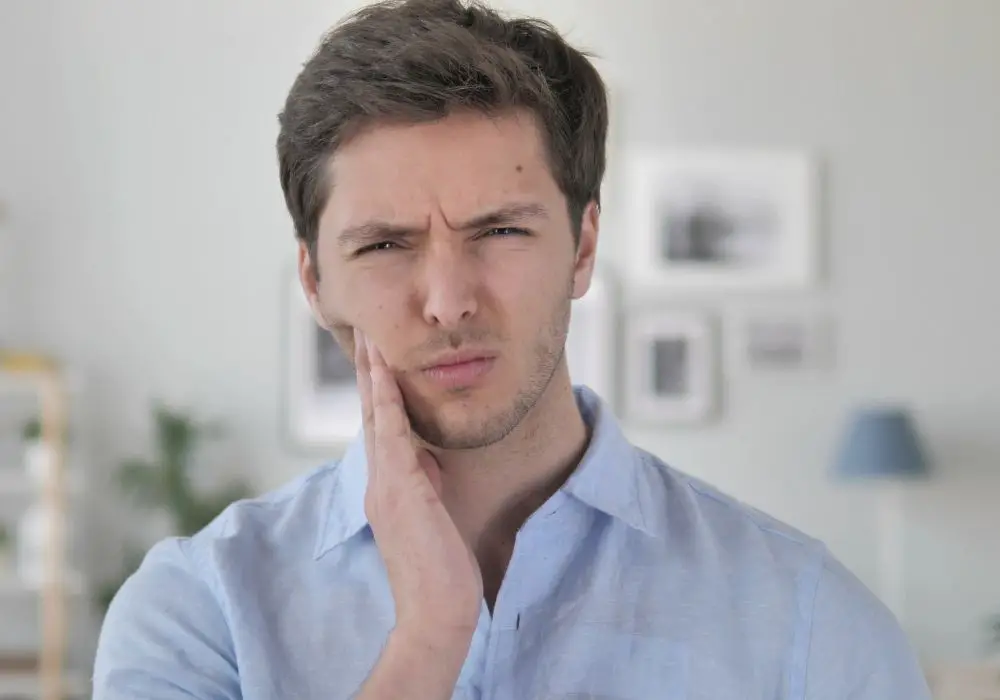
Conclusion
Anxiety can negatively impact oral health through various mechanisms like clenching, inflammation, dry mouth, and poor hygiene. This appears to increase the risk of weakened enamel, gum disease, erosion, cavities, and fractures. Fortunately, you can take proactive steps to care for your teeth by managing anxiety, stimulating saliva, protecting your teeth from wear, practicing good hygiene, and getting necessary dental work. Addressing anxiety and following dental recommendations can help strengthen teeth, restore your oral health, and give you confidence in your smile.
Frequently Asked Questions
Does anxiety directly cause tooth decay?
Anxiety does not directly initiate the tooth decay process. However, it contributes to risk factors that promote an environment favorable to cavities and erosion, including reduced saliva flow, poor oral hygiene habits, bruxism, inflammation, and nutritional deficiencies. These factors allow decay-causing plaque acids to more readily demineralize and damage tooth enamel.
Can my dentist tell if I have anxiety based on my dental health?
Your dentist cannot definitively diagnose an anxiety disorder. However, dentists may notice signs of bruxism like worn teeth, cracked enamel, and sore jaw muscles. Other indicators of high stress could include inflamed gums, cavities, and erosion. Discussing these observations with your dentist can allow them to better understand factors potentially affecting your oral health.
Will getting cavities filled reverse the effects of anxiety on my teeth?
Getting decayed areas of teeth restored with dental fillings or inlays can structurally reinforce a tooth damaged by cavities. However, restorations only repair existing damage and do not address the underlying diet, lifestyle, and anxiety issues that led to decay developing in the first place. To fully reverse the effects of anxiety, you still need to seek treatment for anxiety itself in tandem with dental restorations.
Can children get weak teeth from anxiety disorders?
Yes, anxiety can contribute to dental problems like early childhood caries in children, especially when proper oral hygiene is not maintained. Kids with anxiety may be more likely to consume sugary foods for comfort, clench or grind teeth, avoid brushing due to sensitivity, or have nutritional deficiencies. These factors weaken developing enamel. Early treatment is key to prevent permanent damage to adult teeth.
Will my teeth get stronger if I stop having anxiety?
Reducing your anxiety through professional treatment and lifestyle changes should lessen damaging behaviors like teeth grinding and improve healthy habits like diligent oral hygiene. With proper dental care, this can allow previously weakened enamel to remineralize over time and gain strength. But enamel loss from erosion or severe caries may be irreversible. Managing anxiety helps optimize conditions for tooth remineralization.


